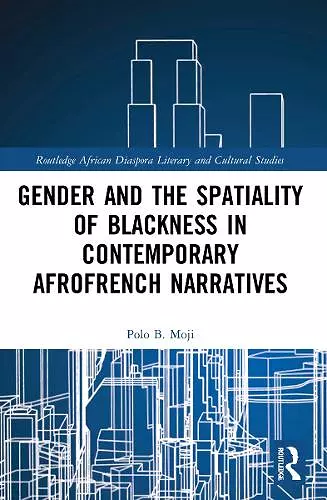Gender and the Spatiality of Blackness in Contemporary AfroFrench Narratives
Format:Paperback
Publisher:Taylor & Francis Ltd
Published:25th Sep '23
Currently unavailable, and unfortunately no date known when it will be back
This paperback is available in another edition too:
- Hardback£145.00(9780367637514)

This book approaches the study of AfroEurope through narrative forms produced in contemporary France, a location which richly illustrates race in European spaces.
The book adopts a transdisciplinary lens that combines critical black and urban geographies, intersectional feminism, and textual analysis to explore the spatial negotiations of black women in France. It assesses literature, film, and music as narrative forms and engages with the sociocultural and political contexts from which they emerge. Through the figure of the black flâneuse and the analytical framework of "walking as method", the book goes beneath spectacular representations of ghettoised banlieues, televised protests, and shipwrecked migrants to analyse the spatiality of blackness in the everyday. It argues that the material-discursive framing of black flânerie, as both relational and embodied movements, renders visible a politics of place embedded in everyday micro-struggles of raced-sexed subjects.
Foregrounding expressive modes and forms that have traditionally received little critical attention outside of the French and francophone world, this book will be relevant to academics, researchers, writers, students, activists, and readers with interests in Literary and Cultural Studies, African and Afrodiasporic Studies, Black Feminisms, Migration Studies, Critical Black Geographies, Francophone Studies, and the comparative framework of Afroeuropean Studies.
By articulating AfroFrench women’s quests for the right type of visibility, since blackness is represented as “spectacular in European spaces” (107), Moji has authored a powerful book. It is a long awaited addition to the body of knowledge. Moji begins by answering some of the most vexing questions about black female belonging in the city. Can the AfroFrench woman walk? [...] Moji’s writing is dense and intricate. It forces the reader to pay attention. This is because the issues dealt with are heavy and emotive and, as such, words need to be carefully mediated in order to honestly convey the AfroFrench people’s quest for equality and recognition. The book reflects the time, a period of some 17 years, and effort Moji has spent carefully thinking
through these issues. The author has intellectually performed a herculean labour and the hefty
work is evident in the analysis.
Nhlanhla Dube, English Department, Stellenbosch University, Stellenbosch, South Africa
Polo B. Moji’s Gender and the Spatiality of Blackness in Contemporary AfroFrench Narratives analyzes the tension between Black French people’s notion of belonging and their presence in French public space. Moji offers a “strolling method” (8) using diverse visual and written materials to show how Black people in certain French public spaces are “out of place” and the ways in which their representations of Blackness are perceived as disruptive. Moji utilizes the gaze of the black flâneuse (strolling woman) to investigate how “race and gender intersect in the (re)mapping and/or repurposing of urban spaces.” [...] To address the
notions of belonging, space, and Blackness in France, Moji makes use of documentaries, biographies, and
novels by Black French politicians, authors, artists, and academics.
Fania Noël, The New School for Social Research New York (NY), USA
Moji’s ground-breaking book highlights the persistence of the geographic collusion that the presence of Black bodies creates and how it disrupts the “fixation of French homogeneity” (45). It is a compelling addition to emerging contemporary Black French studies and demonstrates the need for ongoing transatlantic and afro-diasporic research about blackness in a French context.
Eric Touya de Marenne, Clemson University (SC), USA, writing in The French Review, published by Johns Hopkins University Press
Another thing that warms my heart is that [the] book functions almost as an archive of archives. Sometimes
it's too convenient to think that starting from this contemporary moment, we are starting from scratch. There
is the energy and drive that we've been witnessing in the past years, the willingness to ask questions to dismantle the narrative of the State and to create works with our own words, to explain with our own black experience in Europe.
Mame-Fatou Niang, Associate Professor, Carnegie Mellon University, writing in GeoAgenda, Black feminism, black geographies
ISBN: 9780367637538
Dimensions: unknown
Weight: 453g
172 pages